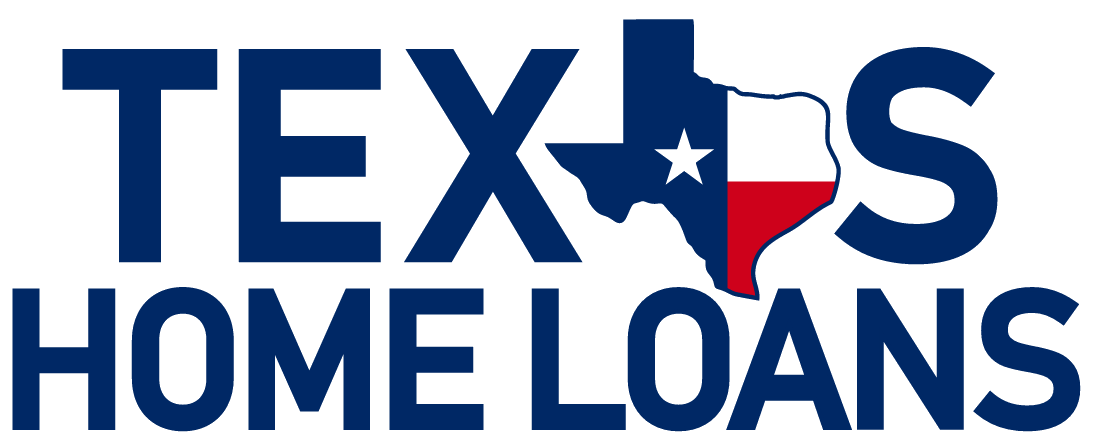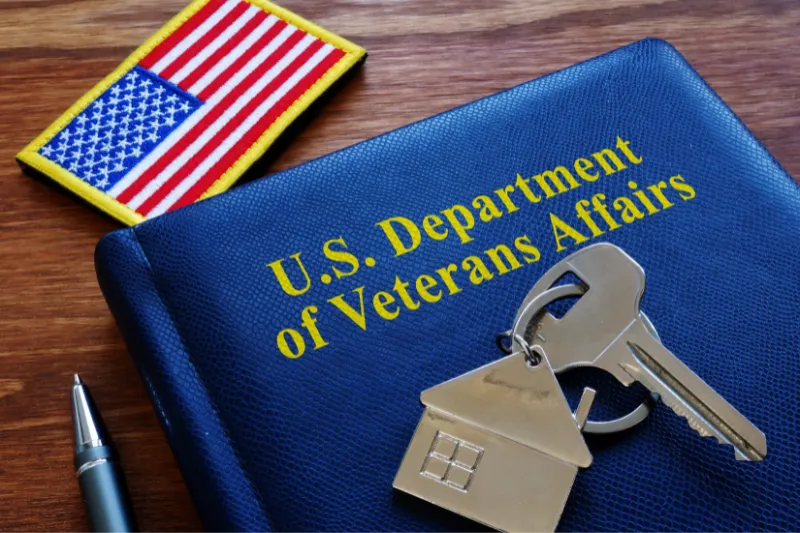Navigating home financing can feel confusing. You might choose between a VA home loan and…
Your Path to a Texas VA Loan: Navigating the Requirements
Are you a soldier or veteran wanting to buy a house in Texas? It’s important to know about VA loans. In this guide, we’ll talk about VA Home Loans in Texas. We’ll cover the history, benefits, eligibility, and documents. By the end, you’ll understand what veterans and soldiers need for VA loans in Texas. This will help you make smart choices when buying your home. Let’s explore VA loans and make it easier for you to get your dream home.
VA Home Loans in Texas
When it comes to financing a home in Texas, veterans and service members have access to a unique mortgage option known as a VA loan. These loans are backed by the Department of Veterans Affairs (VA) and are designed to provide eligible individuals with affordable financing options. If you’re considering buying a home in Texas, understanding the VA home loan process is crucial. Let’s explore the origin and purpose of VA loans, their core benefits, and the specific requirements for veterans and service members in Texas.
The Origin and Purpose of VA Loans
VA loans were established by the Department of Veterans Affairs with the primary goal of aiding eligible veterans, service members, and surviving spouses in achieving the dream of homeownership. The VA home loan program was created in 1944 as part of the GI Bill of Rights, a comprehensive set of benefits for returning World War II veterans. The program aimed to provide veterans with an opportunity to secure affordable housing options and establish stability for their families. Today, VA loans continue to support military personnel by offering favorable loan terms, competitive interest rates, and other advantages.
Core Benefits of a VA Loan
One of the most significant advantages of VA loans is that they often require no down payment, making homeownership more accessible for veterans and service members. Additionally, VA loans offer competitive interest rates, which can result in substantial long-term savings compared to conventional mortgages. Another benefit of VA loans is the absence of private mortgage insurance (PMI), potentially reducing monthly mortgage payments. Furthermore, VA loan limits in Texas are generally higher than those of other loan types, providing eligible individuals with increased purchasing power. These core benefits make VA loans an attractive option for those looking to buy a home in Texas.
VA Loan Requirements for Veterans and Service Members in Texas
Before diving into the VA loan process, it’s essential to understand the requirements for veterans and service members in Texas. To be eligible for a VA loan, you must meet certain criteria, such as military service, type of discharge, and length of service. Both active duty service members and veterans can qualify for VA loans, as well as members of the National Guard and military reserves, under specific circumstances. Understanding these eligibility requirements is crucial to determine if you qualify for a Texas VA loan.
Eligibility Criteria
To qualify for a Texas VA loan, veterans and service members need to meet specific criteria. Understanding the eligibility requirements for a VA loan in Texas is crucial. Factors influencing eligibility include service history and discharge status. To be eligible, individuals must meet qualifications set by the Department of Veterans Affairs. Eligible veterans can enjoy competitive rates and flexible credit requirements. Separation papers and VA home loan certificates are essential for eligibility. Meeting minimum property requirements is also key. Veterans should work with a VA home loan representative to navigate the process smoothly.
Necessary Documents for Application
When applying for a VA loan in Texas, it’s crucial to understand the essential documentation required. Completing the application process for a Texas VA loan necessitates gathering the necessary paperwork. To apply for a VA loan in Texas, specific documents must be provided to support the application. Submitting the required paperwork is vital for a Texas VA loan application to progress smoothly. The documentation needed for a Texas VA loan should be prepared and organized to expedite the application process effectively.
The VA Loan Application Process
Now that we’ve covered the eligibility requirements and necessary documents, let’s explore the step-by-step process of applying for a VA loan in Texas. Understanding the timeline and requirements of the application process can help make your journey toward homeownership smoother and more efficient. From finding a VA-approved lender to navigating pre-approval, house hunting, and closing, we’ll walk you through each stage of the VA loan process. So, let’s get started on your path to homeownership with a VA loan in Texas!
Finding a VA-approved Lender
When pursuing a VA loan in Texas, finding a lender who is approved by the VA is an essential first step. Working with a knowledgeable mortgage lender familiar with the VA loan process can streamline your loan application and ensure a smooth experience from start to finish. VA-approved lenders understand the unique requirements of VA loans and can guide you through the necessary paperwork, eligibility criteria, and loan options. To find a VA-approved lender, you can search the VA’s lender list, consult with a loan officer, or seek recommendations from trusted sources. Taking the time to choose the right lender sets the foundation for a successful VA loan journey in Texas.
Applying for Pre-approval
Before beginning your house-hunting process, seeking pre-approval for a VA loan is highly recommended. Pre-approval demonstrates to sellers that you are a serious buyer and helps set realistic expectations of your budget. During the pre-approval process, a lender will review your financial information, credit score, and employment history to determine the loan amount you qualify for. This step is particularly important for first-time homebuyers using a VA loan, as it provides insight into the price range of homes you can comfortably afford. Obtaining pre-approval empowers you to make confident offers and streamline the home purchase process.
House Hunting with a VA Loan
With pre-approval in hand, you’re ready to embark on the exciting journey of house hunting with a VA loan in Texas. A real estate agent with experience in working with VA loans can be a valuable asset during this phase, helping you navigate the market, negotiate offers, and find the perfect home. Be sure to communicate your price range, preferences, and any specific requirements to your real estate agent, allowing them to search for properties that meet your needs. With the flexibility and benefits of a VA loan, you can explore a range of homes to find the one that suits your style, location, and budget.
Making an Offer and Getting Under Contract
Once you’ve found your ideal home, it’s time to make an offer and enter into a purchase agreement. A purchase agreement, also known as a sales contract, outlines the terms of the purchase, including the price, contingencies, financing, and closing timeline. Your real estate agent will assist you in preparing a competitive offer and negotiating with the seller. It’s important to carefully review the purchase agreement and understand the contingencies and obligations specified. Working closely with your real estate agent, lender, and attorney, if necessary, will ensure a smooth transition from offer acceptance to getting under contract, bringing you one step closer to closing on your new home.
Navigating the Appraisal and Underwriting Phase
After the purchase agreement is accepted, the appraisal and underwriting phase of the VA loan process begins. This stage involves a home appraisal to determine the property’s value and underwriting, which involves evaluating the loan application, credit history, and other relevant financial factors. Navigating this phase successfully is crucial to ensure your loan approval and progress toward closing. Understanding the importance of the home appraisal and the mortgage underwriting process will help you prepare for any necessary steps, meet requirements, and anticipate potential challenges.
Importance of VA Home Appraisal
A VA home appraisal is a critical step in the loan process, as it determines the fair market value of the property you intend to purchase. An appraiser, independent of the lender and seller, assesses the property’s condition, size, location, and comparable sales to determine its value. The appraisal is vital for both the lender and the borrower, as it ensures the property meets the VA’s minimum property requirements. These requirements are in place to protect veterans from purchasing properties with significant defects or safety issues. Understanding the role of the appraiser and the minimum property requirements helps you navigate the appraisal process with confidence.
Navigating the Mortgage Underwriting Process
The mortgage underwriting process is a comprehensive evaluation of your loan application, credit history, income, debt, and other financial factors to determine loan approval. Underwriters carefully review the submitted documents, ensuring that they meet the VA’s guidelines and requirements. Their role is to assess your financial stability, verify the loan amount, and mitigate any risks associated with the loan. Understanding the underwriting process and ensuring you provide all necessary documentation allows for a smooth underwriting experience, minimizing delays and maximizing the chances of loan approval.
Closing on Your New Home Using a VA Loan
As you near the final stages of your VA loan journey, it’s time to prepare for closing on your new home. Closing, also known as settlement, is the process where ownership of the property is transferred to you. The closing table is where all the relevant parties, including the buyer, seller, lender, and possibly an attorney or closing agent, gather to complete the necessary paperwork. Understanding the final steps in the VA loan process and what to expect at closing will help you approach this significant milestone with confidence and excitement.
The Final Steps in the VA Loan Process
In the final stages of the VA loan process, there are a few essential steps to complete before closing. One of these steps is receiving the closing disclosure, a document that outlines the final loan terms, interest rate, closing costs, and any applicable fees. It is important to carefully review this document to ensure accuracy and address any questions or concerns before closing day. Additionally, veterans utilizing a VA loan are required to pay a funding fee, which helps sustain the VA home loan program for future military borrowers. Understanding these final steps prepares you for a smooth closing process and a successful transition to homeownership with your VA loan in Texas.
What to Expect at Closing
Closing day is an exciting time as it marks the culmination of the VA loan process and the beginning of your homeownership journey. At closing, the buyer, seller, lender, and possibly an attorney or closing agent gather to sign the final paperwork and complete the transaction. During this process, you will sign various loan documents, including the mortgage note, deed of trust, and settlement statement. The lender will provide clear instructions regarding the closing process, including the amount of money required for closing costs and down payment, if applicable. Being prepared, asking questions, and closely reviewing the closing documents will ensure a smooth and successful closing experience.
Understanding the VA Loan Jargon
As you navigate the VA loan process, you may come across unfamiliar terms and jargon specific to VA loans. Understanding this terminology is crucial for effectively communicating with lenders, real estate professionals, and other parties involved in the process. Some key terms to familiarize yourself with include entitlement, which refers to the amount of loan guarantee provided by the VA, and loan terms, such as interest rate, loan amount, and loan duration. By deciphering VA loan jargon, you’ll be equipped with the knowledge to make informed decisions throughout the loan process.
Understanding the Certificate of Eligibility (COE)
The Certificate of Eligibility (COE) is a crucial document for VA loan applicants, as it verifies their eligibility for a VA home loan. The COE provides information on your military service, discharge status, entitlement, and any specific eligibility requirements. Acquiring your COE is typically the first step in the VA loan approval process. It can be obtained online through the eBenefits portal, by mail, or with the assistance of a VA-approved lender. Understanding the significance of the COE, how to obtain it, and its role in the VA loan process will help streamline your application and ensure a smooth journey toward homeownership.
Deciphering VA Loan Terms
In addition to understanding the COE, familiarizing yourself with key VA loan terms is essential for navigating the loan process successfully. Terms such as financing, interest rate, and VA direct impact various aspects of your loan, including affordability and loan options. Financing refers to the amount of money borrowed to purchase the home, while the interest rate represents the rate at which interest accrues on the loan amount. VA direct is a term that may be encountered when determining loan eligibility and options. By deciphering these terms, you’ll have a solid grasp of the key concepts and factors that shape your VA loan experience.
Comparing VA Loans with Other Loan Types
VA loans offer eligible veterans and service members distinct advantages over conventional loans and other financing options. These advantages contribute to the popularity of VA loans among military borrowers in Texas. Understanding the differences between VA loans and conventional loans enables you to make informed decisions when selecting the loan type that best suits your needs. By comparing the benefits, loan terms, and eligibility requirements of VA loans with other financing options, you can evaluate which loan type aligns with your goals and financial situation.
Advantages of VA Loans Over Other Financing Options
VA loans offer several advantages over other financing options, making them an attractive choice for eligible veterans and service members. One notable benefit of VA loans is the potential to purchase a home with no down payment, allowing borrowers to preserve their savings and build home equity from day one. Additionally, VA loans often feature competitive interest rates, which can result in significant savings over the life of the loan. Understanding these unique advantages helps veterans and service members weigh their options and make informed decisions about financing their home purchase in Texas.
When Should You Consider Other Loan Options?
While VA loans provide exceptional benefits, there may be situations where other loan options are more suitable. For example, if you have a low credit score or are seeking a loan amount that exceeds the VA loan limits, exploring conventional loans or alternative financing options might be necessary. Each loan type has specific eligibility requirements, minimum credit score thresholds, and loan limits. Assessing your financial circumstances, credit history, and loan amount requirements will help determine whether a VA loan or an alternative loan option is the most appropriate choice for your specific needs.
How Does a VA Loan Impact Your Future Financial Planning?
Exploring the future financial impact of a VA loan involves understanding its long-term implications on your stability and wealth. Learn how strategically incorporating a VA loan into your financial plan can shape your home equity and future financial security.
Frequently Asked Questions
What are the specific requirements for obtaining a VA loan in Texas?
To secure a VA loan in Texas, eligibility as a veteran, active-duty member, or surviving spouse is essential. A Certificate of Eligibility (COE) from the VA is required. While no minimum credit score is mandated for Texas VA loans, lenders may have their own criteria, along with income verification and property standards.
Are there any special considerations or benefits for Texas veterans seeking a VA loan?
Texas veterans seeking a VA loan may benefit from special housing grants for home modifications, property tax exemptions, employment and education assistance programs, and tailored counseling services. These perks cater to their unique needs and enhance their overall well-being.
What documents are needed to apply for a VA loan in Texas?
Commonly required for a Texas VA loan application are proof of income, employment history, and credit reports. Additionally, bank statements, tax returns, and proof of military service might be requested. Consult a VA loan specialist for specific requirements, including a Certificate of Eligibility (COE) from the VA.
Conclusion
To understand Texas VA loan needs, veterans and service members must know key benefits. These include no down payment and lower rates. Eligibility requirements and needed documents are important for a smooth application process. Comparing VA loans with other options aids decision-making. Consider how a VA loan fits into your financial plans for future goals. Stay informed when exploring home loan choices in Texas for a secure financial future.






